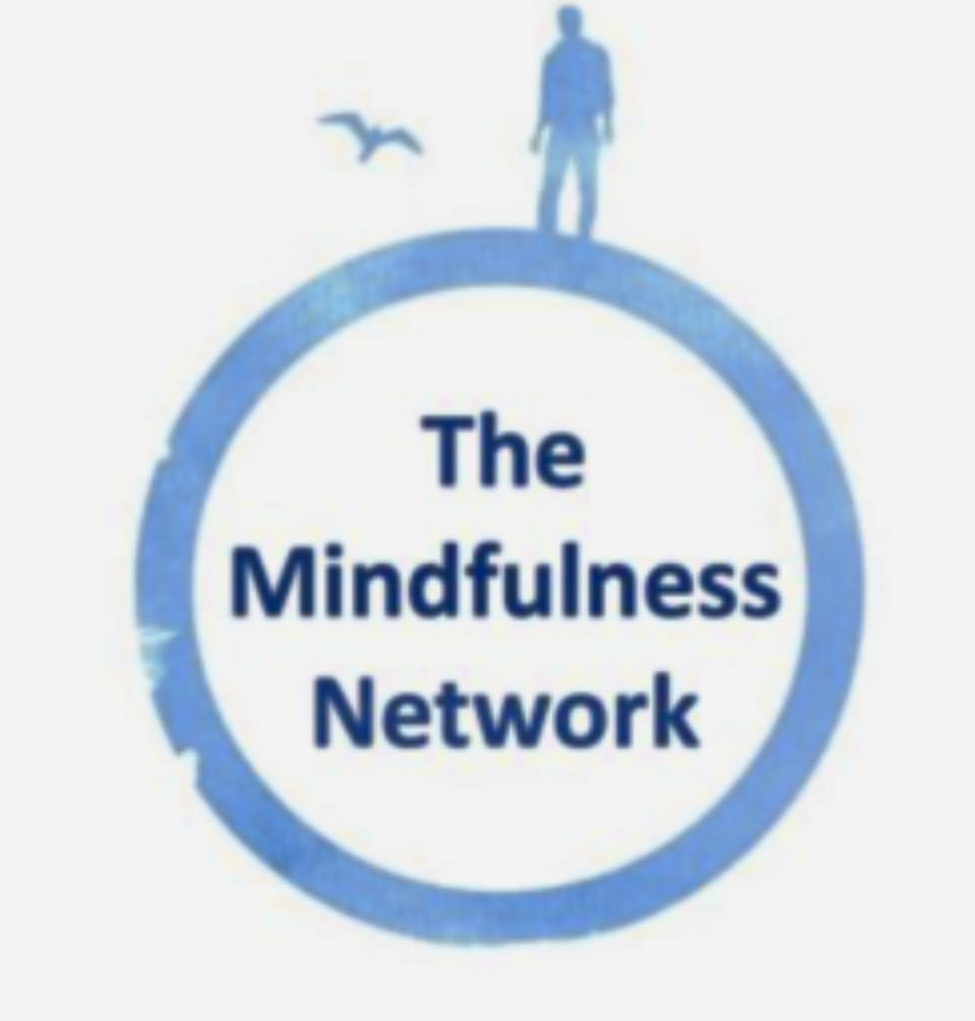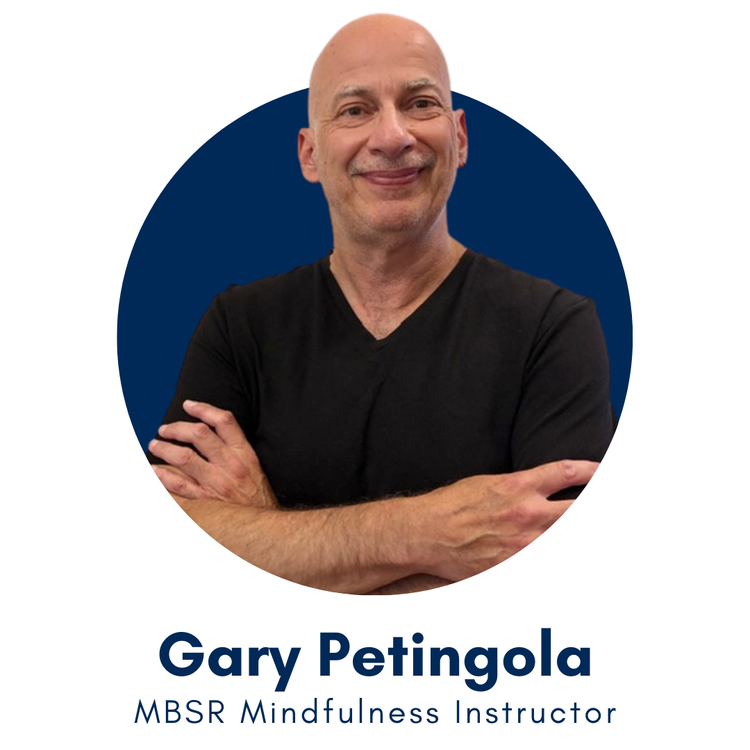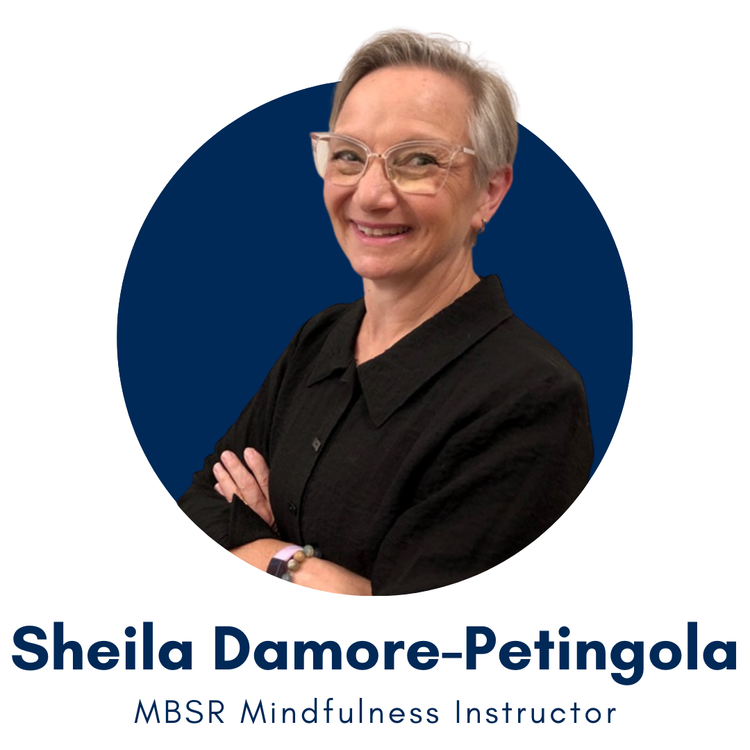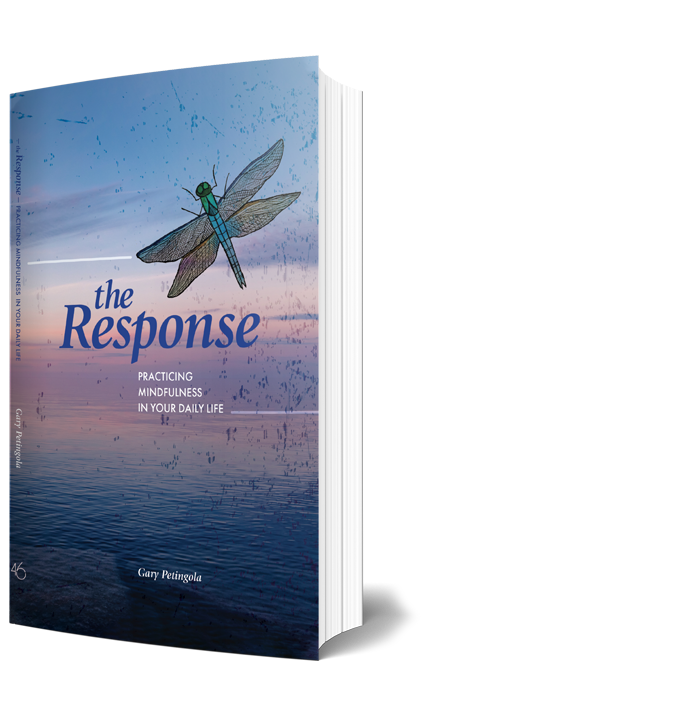The following section provides information to questions we are asked most often. If you have additional questions, please contact us at [email protected]
What is Mindfulness?
It is the intention to pay attention to each and every moment of our life, non-judgmentally. While there are many possible definitions, the key aspects of any definition of mindfulness involve purposeful action, focused attention, grounded in the current experience, and held with a sense of curiosity. Mindfulness on the Rocks believes that we all have the capacity for mindfulness. Mindfulness techniques, strategies, & practices develop and strengthen the following skills:
• Concentration
• Clarity
• Equanimity
What is Mindfulness-Based Stress Reduction (MBSR)?
Mindfulness-Based Stress Reduction (MBSR) is an educational experiential learning program based on the core principle of mindfulness. The program is offered in a group setting and guided by qualified MBSR teachers as the curriculum unfolds over 8 weeks. The class meets weekly for 2 1⁄2 hours and includes a combination of mindfulness practices, group sharing of experience with practice, and the exploration of topics such as mindfulness, stress, and communication. There is a full day of practice that occurs between the 6th and 7th week of the 8-week program. In addition to the 30 hours of practice in a supportive classroom environment, each participant engages in 30 – 40 minutes of daily mindfulness practice between classes to foster development of the new habit of mindfulness.
Why do people take the Mindfulness-Based Stress Reduction (MBSR) course?
• Personal wellbeing and resilience
• Professional development
• Integration into workplace wellness
• To assist in the management of illness, pain, and chronic conditions
Is MBSR good for my medical condition?
MBSR has been scientifically shown to be an effective complement to a wide variety of medical and psychological conditions. We know that there is scientific evidence to verify that Mindfulness interventions contribute to moderate improvements in depression, anxiety and pain, and stress reduction and quality of life (Farias & Wikholm, 2016).
Below is a partial listing of medical and psychological conditions with citations of some of the benefits of mindfulness practice.
Anxiety (Hoge, Bui, Marques, Metcalf, Morris, Robinaugh, et. al., 2013)
Asthma (Pbert, Madison, Druker, Olendzki, Magner, Reed, et. al., 2012)
Cancer (Carlson, Doll, Stephen, Faris, Tamagawa, Drysdale, & Speca, 2013)
Chronic Pain (Reiner, Tibi, & Lipsitz, 2013)
Diabetes (Hartmann, Kopf, Kircher, Faude-Lang, Djuric, Augstein, et. al., 2012)
Fibromyalgia (Schmidt, Grossman, Schwarzer, Jena, Naumann, & Walach, 2011)
Gastrointestinal Disorders (Zernicke, Campbell, Blustein, Fung, Johnson, Bacon, & Carlson, 2013)
Heart Disease (Sullivan, Wood, Terry, Brantley, Charles, McGee, Johnson, et. al., 2009)
HIV (Duncan, Moskowitz, Neilands, Dilworth, Hecht, & Johnson, 2012)
Hot Flashes (Carmody, Crawford, Salmoirago-Blotcher, Leung, Churchill, & Olendzki, 2011)
Hypertension (Hughes, Fresco, Myerscough, van Dulmen, Carlson, & Josephson, 2013)
Major Depression (Chiesa & Serretti, 2011)
Mood Disorders (Hofmann, Sawyer, Witt, & Oh, 2010)
Sleep Disturbances (Andersen, Wurtzen, Steding-Jessen, Christensen, Andersen, Flyger, et. al., 2013)
Stress Disorders (Kearney, McDermott, Malte, Martinez, & Simpson, 2012)
What impact does mindfulness practice have on my brain and cognitive processing?
Mindfulness is an active area of research with many studies focusing on the structural and functional changes in the brain due to completion of an MBSR program.
How might mindfulness meditation benefit my life?
The direct benefit is living our lives in this moment with awareness instead of “on automatic pilot” or solely in the past or future. Participants in the MBSR program often report greater joy for the simple things in life, such as a shared moment with their child or partner or more aware of the change of seasons as flowers bloom and snow falls. We begin to realize that there is more “right” with us than “wrong” with us as we become more engaged in our lives. Many of the side effects of mindfulness meditation found in scientific research include decrease in psychological symptoms such as anxiety and depression as well as greater stability in physical symptoms such as blood glucose levels and blood pressure. Mindfulness is not a quick fix, nor is it a panacea for all problems. mindfulness is:
• Being with what is rather than escaping pain
• Equanimity rather seeking nirvana
• Being with the pleasant,unpleasant and neutral of life.
Ultimately, it is an empirical question and everyone is encouraged to find out for themselves how mindfulness meditation might benefit their lives.
Do I need a medical doctor referral?
No…In most cases you do not need a medical doctor referral to be able to attend an MBSR course.
However, if you are under the care of a physician or mental health professional and have any specific health concerns we would want to address those with you prior to your acceptance into the MBSR program. With your consent and permission we can set up an agreement to speak with your doctor or mental health professional as you go through the course in order to increase the support network for you as you move through the program.
How long has MBSR been taught?
Dr. Jon Kabat-Zinn founded the Stress Reduction Program in 1979. Since its inception 35 years ago, more than 20,000 people have completed our eight-week Mindfulness-Based Stress Reduction Program (MBSR) and learned how to use their innate resources and abilities to respond more effectively to stress, pain, and illness. The central focus of this Curriculum is intensive training in mindfulness meditation and its integration into the challenges/adventures of everyday life.
Can children and teens sign up for the MBSR course?
Mindfulness-Based Stress Reduction was designed for adults. Mindfulness on the Rocks encourages individuals 17 years or older to register for the program. If you have a child or teen under the age of 17, we will examine the possibility of service, or refer you to appropriate mindfulness resources.
Will my health insurance pay for the MBSR course?
Some private health plans provide coverage, as Sheila and Gary are both Masters of Social Work credentialed. Check with your insurer directly to determine if funding is available.
Currently, upon successful completion of the program, health care workers will receive $200.00 reimbursement through a special funding grant offered by the Chronic Disease Self-Management Program.
Our goal is to the make the Mindfulness-Based Stress Reduction program available to those who can benefit. Alternative payment options may be considered. For more information, please contact us directly.
Do I need to have experience with meditation or yoga prior to the course?
No…While prior mindfulness practice may motivate individuals to take MBSR, the MBSR program and teacher have no expectation that participants have experience with meditation or yoga or any other mindfulness practice. Everyone will have the opportunity to explore and experience mindfulness while having a skilled teacher to guide and help answer questions about practice.
For those that have experience with meditation or yoga in the past, the course can be a good refresher to rebuild a strong daily practice. At Mindfulness on the Rocks we want to assure you are safe. We always invite you to listen to your body and do what feels right. Many participants modify their yoga poses, or close their eyes and visualize them. These are equally beneficial alternatives.
Do I need to read any books prior to the course?
No…It is not necessary to read any books prior to attending the MBSR class. In fact during the class we recommend not reading any books, as mindfulness is a highly experiential process. We invite you to use this time to investigate your own process and experience of the course and then after it is finished it may be useful to expand your understanding through reading books such as the ones listed below:
Full Catastrophe Living by Jon Kabat-Zinn
Heal Thyself by Saki Santorelli
Where Ever You Go There You Are by Jon Kabat-Zinn
Do I need a textbook for the MBSR class or a notebook to take notes during the class?
No…You will not need to have a textbook or a notebook for the MBSR class itself. We recommend that while in the class you don’t take notes. We have included many things you may want to reference in a workbook given to all participants. Ultimately, our experiences with the mindfulness practices and our lives become our textbook and notes.
Some participants have found it helpful to keep a journal outside of the class to note experiences during the unfolding of the class.
Do I have to engage in mindfulness practices to benefit from the program?
Yes… Mindfulness is a highly experiential practice and therefore engaging the formal mindfulness practices is perhaps the most important component of the course. We encourage all of the participants to use the 8-weeks as a testing ground for the mindfulness practice. In this way you will be able to see what benefits may come from taking the course. After the class participants are encouraged to continue with their mindfulness practice as it fits and supports their lives.
How much practice is in the MBSR class week to week?
Mindfulness practice is a major component of each class meeting as well as the time in-between classes. During the week participants use mindfulness recordings available on our website to support daily practice. The recordings contain mindfulness mediations and yoga sequences that are about 40-45 minutes long.
I cannot sit still for very long, can I still take an MBSR class?
Yes… Mindfulness is not about sitting still or moving slowly. Mindfulness and MBSR is about bring attention to this moment whether it is stillness or fidgety. Participants will engage in many different forms of mindfulness practices which include sitting, lying down, standing, and moving. Participants are encouraged to take care of themselves. If you need to leave the room and walk a bit and then come back that is an option. The class may also be a good place to explore the edges of our boundaries with this and to notice what it is like to stay with this and notice if it perhaps changes over time.
Do I need to be athletic or flexible to take and MBSR course?
No… The class is open to a wide variety of individuals who may have a wide variety of abilities. The yoga is designed to be gentle and the focus is more on giving attention to the movement (even if imagined) than to the particular posture. Participants are encouraged to let their teacher know if they have any physical challenges. This will allow the teacher to fully support the participants as they engage in the mindfulness practices to help modify the practices to fit the individual. Participants are always encouraged to take care of themselves in the best way possible.
Are there conditions or life situations where taking an MBSR course is not recommended?
There are some conditions that participants are encouraged to be under the care of a mental health professional or medical doctor and in still other cases participants are encouraged to delay entering an MBSR program or seek other treatments.
A partial list of conditions or life situations may include a history of substance or alcohol abuse with less than a year of being clean or sober, thoughts or attempts of suicide, recent or unresolved trauma, as well as being in the middle of major life changes. The hope is that participants can complete the MBSR course at a point in their life where they are supported and able to gain full benefit from the mindfulness practices.
Will Mindfulness-Based programs disrupt my ongoing psychotherapy?
MBSR can be a wonderful compliment to psychotherapy. If you are currently in therapy we do recommend that you speak to your therapist about your intention to participate in an 8-week course. Our preference is that your therapist is in support of your taking the class. We can with a consent agreement and your permission speak with your therapist if you choose as you go through the program.
Is mindfulness compatible with my religious faith?
MBSR was developed in a way that is accessible to all people regardless of the religious traditions or beliefs. Mindfulness practice is really just about being awake to our lives as they are and working with seeing our process and ourselves more clearly. This tends to be a good compliment to many religious traditions in ways that you can explore as you develop your practice.
Will taking this course give me the skills and credentials to be authorized to teach MBSR?
Participating in an eight week MBSR program is a first step in your mindfulness journey. At Mindfulness on the Rocks we like to compare it to dipping your toe in the lake. It is only a beginning. To become a certified MBSR teacher requires vigorous meditation practice, years of training, supervision,and participating in regular teacher lead multi day silent retreats. Sure there are persons in the community who are now advertising that they can teach Mindfulness, but many do not have the appropriate qualifications. This can be a danger to you. The McMindfulness trend that has emerged is exciting but frightening at the same time as teachers need to be aware of and honour the do no harm commitment to practice.
What makes us stand out from the rest?
Mindfulness on the Rocks is committed to providing the gold standard for Mindfulness-Based Stress Reduction programming in Northeastern Ontario. As University of Massachusetts Medical School (UMMS) Center for Mindfulness (CFM) trained teachers we have completed rigorous coursework, supervision and training prior to earning the distinction of CFM qualification to teach from the oldest, largest, continually running MBSR clinic and teacher training organization in the world. This means that you receive evidence-based mindfulness curriculum delivered with skill, embodiment, integrity and wisdom.
How do I sustain mindfulness meditation practice?
Mindfulness on the Rocks provides opportunities ( Greater Sudbury Public Library, Health Sciences North, Yogathon for NISA) some freely offered, for participants to continue their meditation practice in community. Please refer to our website and Facebook page for further information.
Is there a refund policy for the MBSR program?
Refunds for the MBSR program are available for cancellations made before the second session/Class #2, minus a $50 processing fee. After the first session, no refunds or credits will be issued unless due to an emergency or exceptional circumstances. We appreciate your understanding.
How many classes must I attend to receive a certificate of attendance?
To receive a Certificate of Completion for the Mindfulness-Based Stress Reduction (MBSR) program, participants are expected to attend a minimum of 6 out of the 8 weekly sessions, as well as the all-day retreat. Attendance is an essential part of the learning process, as each session builds upon the last. If you anticipate being absent for more than two sessions, we kindly ask that you speak with the instructor prior to the start of the course. In some cases, make-up options may be available. However, missing more than two sessions (including the retreat) may affect your eligibility to receive a certificate. Thank you for your commitment to this process and to yourself.

















